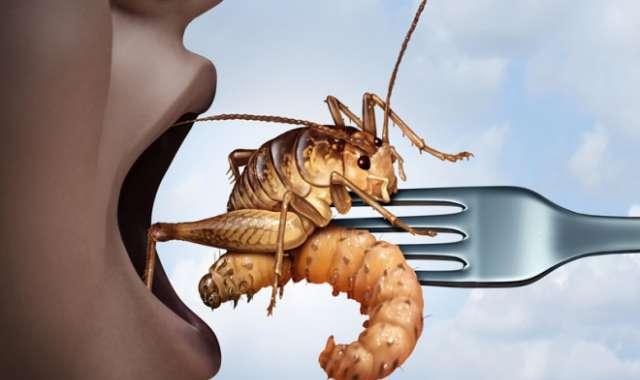Look at the news knows reporter Ren Meixing Pan Yi
2021-07-16 14:00
As the planet's growing population puts more pressure on global food production, insects are becoming a viable source of food. On Thursday, July 15, local time, experts said that insects are rich in protein, and the feeding process is more environmentally friendly and sustainable than that of livestock such as pigs and cattle.

Tiziana Di Costanzo, an insect-eating entrepreneur, runs cricket and bread bug cooking classes at her home in London, UK, and raises some with her husband in a backyard shed. Her startup Horizon Insects is part of the European edible insect industry, an emerging industry with dozens of insect-based startups that produce and develop a variety of insect foods such as "cricket chips," "insect burgers" and "beetle beer."
In interviews, Di Costanzo demonstrates pizza dough making at home, which includes flour, yeast, salt, olive oil and an unusual thing— ground into powdered crickets. She described to reporters that cricket powder will make pizzas have a unique "meat aroma" and taste very delicious. At the same time, the insect component also makes the pizza healthier, which not only increases the protein ratio, but also contains macronutrients and omega acid.
As for bread worm powder, Di Costanzo thinks it's better for desserts, baking and pasta. "If you dehydrate it and grind it into powder, you can put it in the cake batter, where bread worms have a nutty flavor and a mild taste. You can also use it to make bread, pasta and tortillas," she says.
Currently, 2 billion people in 130 countries around the world regularly eat insects. According to India's research firm Meticulous Research, the global edible insect market will grow from less than $1 billion in 2019 to $8 billion by 2030. Investment bank Barclays also cited the data and said the global edible insect market was poised.
Experts say that compared to raising pigs and cattle, raising insects requires only one-tenth of their land area. At the same time, insects emit far less greenhouse gases and ammonia than animal husbandry, and require much less water than cattle and pigs consume. The European Union headquarters in Brussels is also supporting insect-based protein research as part of a broader sustainable food strategy.
The European Union reportedly approved the use of insect protein as fish feed in 2017 and will approve it for poultry and pigs later this year. In 2018, the U.S. Food and Drug Administration (FDA) approved the use of insect protein in chicken feed.
Regulatory reforms in recent years have also facilitated the direct promotion of insect food by European companies. Earlier this year, after filing an application from the French insect farm Micronutris, the European Union approved the mealworm larvae, commonly known as bread worms, for human consumption for the first time. This month, an application from The Netherlands insect farming company Protix was also answered — the regulator issued a positive opinion on the consumption of grasshoppers, meaning approval is imminent.
"In the next few years, we're going to see an explosion in insect food adoption," said Kees Aarts, CEO of Protix, "and we see a very bright future, not only in animal nutrition, but also in human nutrition, because humans will always look for products that promote health and taste." ”
According to Arz, in addition to being sustainable in terms of resources and emissions, raising edible insects can also achieve "turning waste into treasure". There is a special insect larvae capable of handling food waste and food processing by-products, and these protein-rich and healthy fat-rich larvae will eventually become healthy, safe and hygienic ingredients. This bug is called the black water fly.
Protix raises the larvae of black water flies on advanced vertical farms and then converts them into protein powder and oil for processing fish feed and pet food. The company also launched a range of insect-based snacks and ingredients, such as "cinnamon bread worm" and "cricket protein croquettes".
However, despite these European startups' efforts to turn insects into tempting food, these products may not soon appear on mainstream restaurants and their own tables. Experts say one of the main reasons is that people in Western countries generally think that bugs are "disgusting", and this cultural practice of aversion to bugs may be difficult to change.
But in the near future, people will soon eat more bugs indirectly, because the most promising market for the edible insect industry at present is animal feed processing. In addition, startups mainly believe that insect raw materials have the potential to become popular in the food industry, rather than air-dried and seasoned whole bugs.
"I think the future trend is food made from insect raw materials, not the insects themselves," di Costanzo said, "and I don't think dry eating big bugs is going to be the trend." ”
(Editor: Kim Ri-wei)